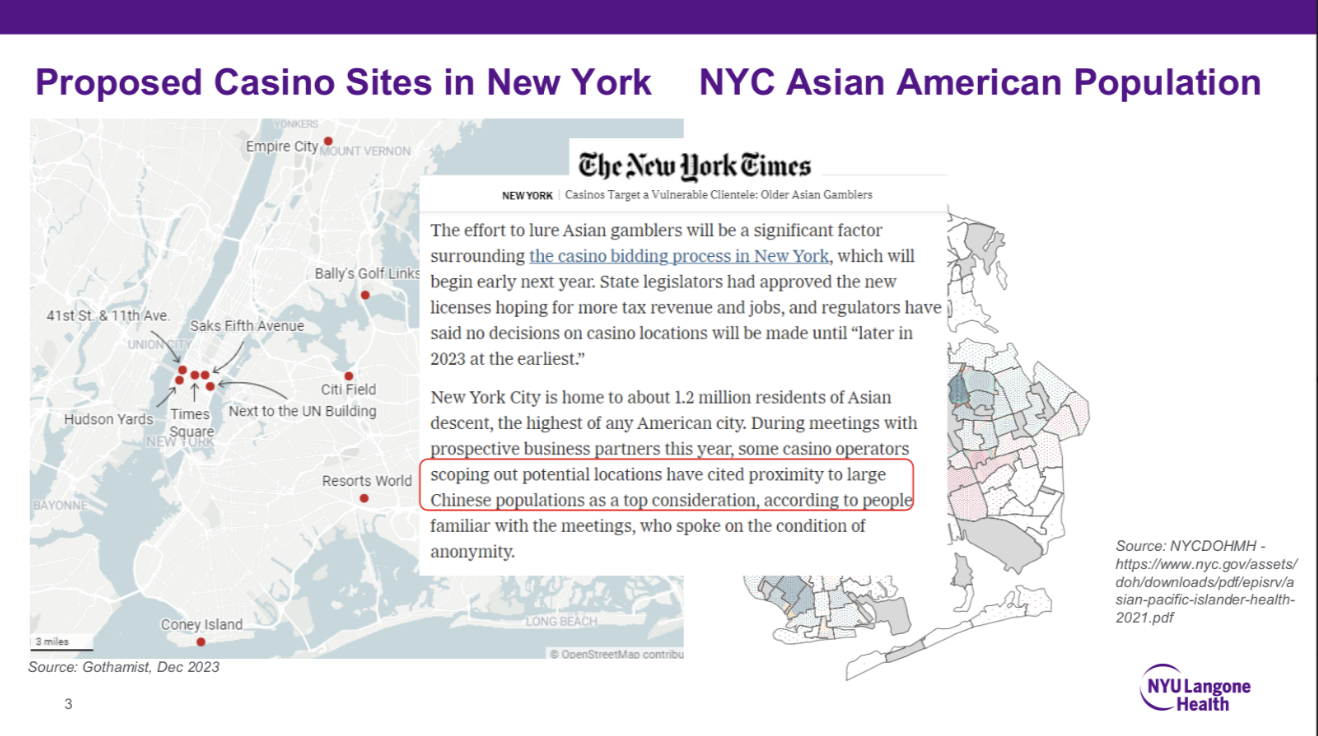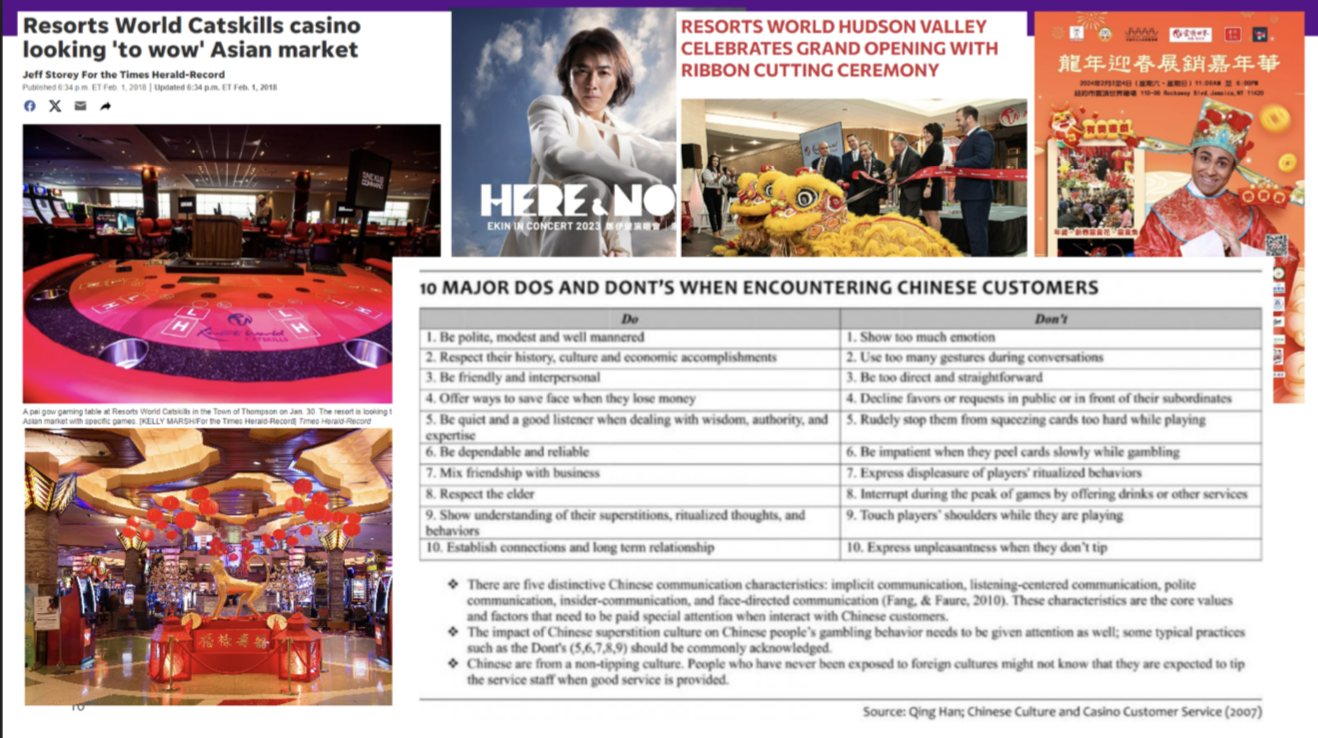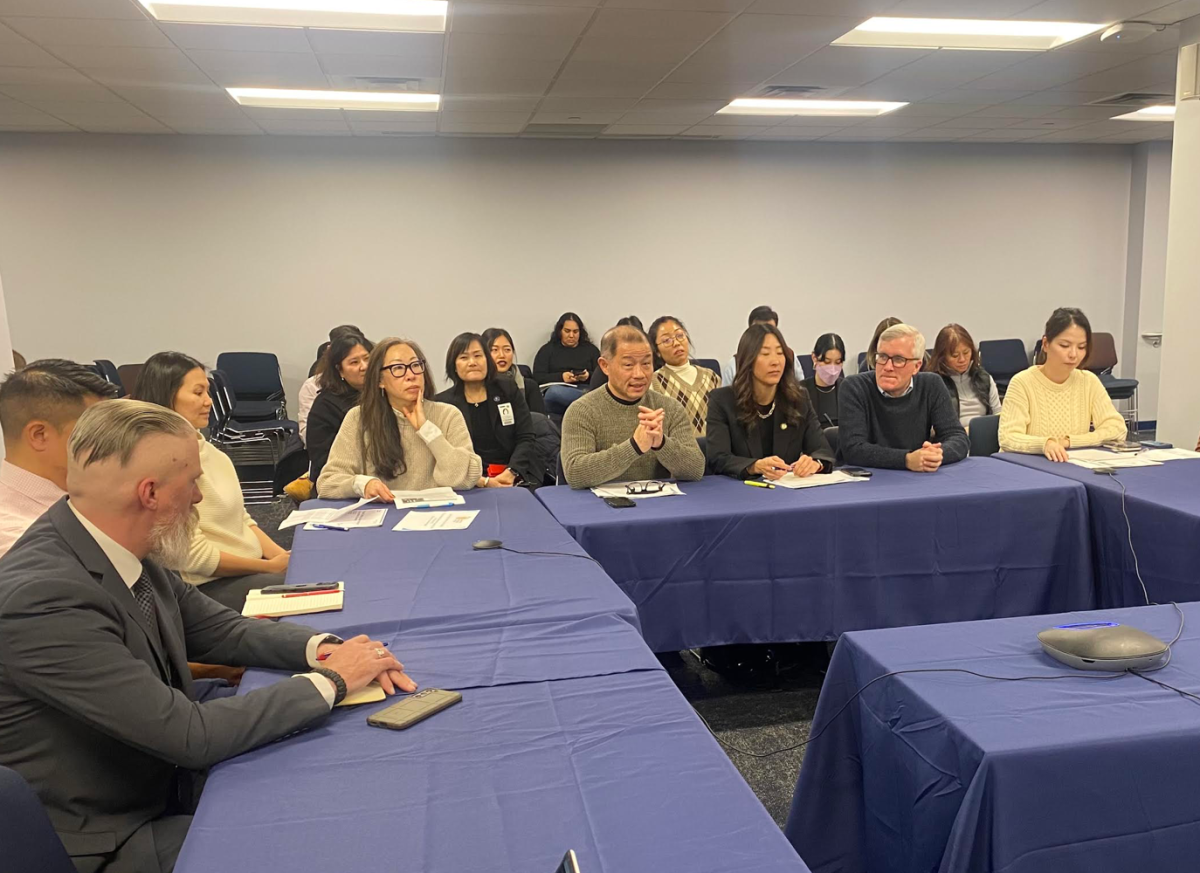Elected officials sat down with academic experts last week for a roundtable discussion on the harmful impact that gambling has on the Asian American community in the city.
The Jan. 19 discussion, held at City Hall, came at a time when the state is considering granting licenses to casino companies looking to open locations around the city such as in Citi Field and Coney Island. It was jointly organized by state senators and assembly members before they head to Albany, where formal decisions on casino operations in the city will be made.
Currently Resorts World casino, near JFK airport, is the city’s only casino. The casino does a brisk business, with it generating the highest gaming revenue of any casino outside of Nevada in 2021.
Casino companies, however, are specifically targeting Asian American customers, according to several experts who presented evidence during the discussion. Operators hand out vouchers in neighborhoods such as Chinatown and offer free bus rides to casinos. The experts cited one casino that provides its staff with a tip sheet on the “major do’s and don’ts when encountering Chinese customers.”
“Dealing with social and linguistic isolation, and economic challenges, gambling may seem like a way out for some people,” said Dr. Wooksoo Kim, director of the Immigrant and Refugee Research Institute at the School of Social Work at the University of Buffalo. “When you toss that into the mix of other vulnerability factors, Asian Americans end up at a higher risk of getting caught up in a gambling problems.”
All nine proposed casino sites across the city – five in Manhattan, two in Queens and one each in Brooklyn and the Bronx – are also within 10 miles of neighborhoods with a significant Asian population. Experts argue that this is just another example of casino companies preying on vulnerable populations.
While the researchers pointed out that there is limited data on gambling in the Asian community, it is globally known that Asians report higher rates of problematic gambling than other populations. One study also found that while white Americans engage in gambling at higher rates, Asians have higher rates of problem gambling.

“I’m not opposed to generating revenues for the state,” said state Sen. John Liu, who co-hosted the discussion. “But it can’t be on the backs of the Asian American community, which is going to be disproportionately harmed. Provisions, accommodations, resources – that must be part of the equation.”
Assemblymember Grace Lee, who organized the roundtable, recounted a close friend whose father had a gambling addiction that had a detrimental effect on his family. She said that for many Asian Americans, the issue is deeply personal.
“It is disruptive, or damaging, to the individual and their family. It is associated with financial harm, relationship disruption, family and intimate partner violence and emotional and psychological distress,” said Yi-Ling Tan, a program manager at NYU Langone Health. “Problem gambling also has the highest rate of suicide of any addictive disorder.”
There are several cultural, social and financial aspects that put Asian Americans in a vulnerable position to be affected by gambling addiction.
Dr. Simona Kwon, an associate professor at the NYU Grossman School of Medicine, pointed out that historically East Asians have experienced “dehumanizing stereotypes” that paint them out to be weak and overly susceptible to vices and addictions. And cultural elements around luck, superstitions and numerology, as well as gambling being part of celebrations such as the Lunar New Year, reinforce those stereotypes.

A 2020 study found that one in four Asian adults in the city live in poverty, which is slightly higher than the overall rate of one in five. Researchers also pointed out that low income residents tend to work in “high stress frontline jobs” in the service industry, and tend to take on more than one job to make ends meet.
“For low income groups, gambling represents a way to make money, it’s an outlet for stress,” Kwon said. “And casinos are often the only recreation that are open late at night after work shifts when other types of recreation are closed.”
Older Asian adults are most vulnerable, as they generally live on a fixed income and are unable to recover as fast from financial disruption, the experts said. With less structure and social support, gambling can provide an exciting stimulus in their lives. Those with cognitive impairments, such as dementia, could also be more prone to loss of control when gambling.
“Casino operators may exploit these vulnerabilities as we saw in some of the marketing, and are filling the gap in the lack of recreational opportunities by using targeted culturally and linguistically centered marketing and services with free buses and vouchers,” added Kwon.
The researchers stressed the need for educational campaigns that inform people of risks and realistic odds of gambling. It is important that information is tailored specifically to Asian communities, they said, and is made available in several languages delivered by community organizations that work directly with the population.
They also advocated for state supported reimbursement for treatment and intervention services. Starting in January 2023, New York State Medicaid began to approve reimbursements for providers who are treating clients with a gambling diagnosis.
Karen Wang from Hamilton-Madison House, a nonprofit in Chinatown that offers behavioral health services, shared two case studies from patients with gambling addictions—both Asian males in their 50s. Both would spend a significant portion of their income at the casino each week in hopes of winning big. She added that the treatment process, to break the gambling mindset can be “extremely long” to be successful.
Kim also added that a lot can be learned from the government’s policy approach to reducing tobacco consumption in the city. But it would require long term planning and resource allocation to bring change and get in front of the problem.
“Waiting until the problem is not knocking at the door and gambling treatment is not the ideal scenario,” added Kim. “We should be tackling this before it turns into a full-blown issue for individuals, families and communities.”



































